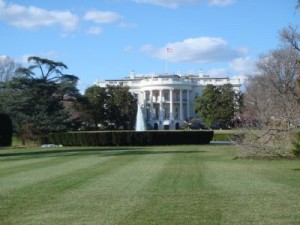 The November edition of GQ magazine (British edition – which I purchased because it contains a number of Bond related features) details the winners of the GQ 2012 ‘Men of the Year’ awards. The Bond link is a tie-in with the (very) imminent release of the new Bond opus – ‘Skyfall’- which marks the 50th anniversary of the franchise. You can all rest safe in the knowledge that I will be returning to the subject of Bond (if not of Daniel Craig!) in the not too distant future. For now, though, I want to focus on one particular man of the year…
The November edition of GQ magazine (British edition – which I purchased because it contains a number of Bond related features) details the winners of the GQ 2012 ‘Men of the Year’ awards. The Bond link is a tie-in with the (very) imminent release of the new Bond opus – ‘Skyfall’- which marks the 50th anniversary of the franchise. You can all rest safe in the knowledge that I will be returning to the subject of Bond (if not of Daniel Craig!) in the not too distant future. For now, though, I want to focus on one particular man of the year…
It is 23 years since ‘A Few Good Men’ premiered on Broadway and kick-started Aaron Sorkin’s writing career. Sorkin – who sold the film rights to the script before it had even opened – was subsequently engaged to write the screenplay for the 1992 movie version, which earned him a Golden Globe nomination later the same year.
Sorkin’s career highlights have been rehearsed often enough that there is no need for me to repeat them here. It is a testament to his talent and longevity that adding the 2012 GQ ‘Men of the Year’ award for best writer to his trophy cabinet comes as no surprise, and indeed as something of a relief to those who hanker after the sort of high quality writing that – Stoppard and a few others excepted – seems sadly in short supply in this day and age.
For those unfamiliar with Sorkin’s oeuvre, however, I feel compelled to give just one example – from the first series of the multi-award winning ‘The West Wing’ – by way of an illustration and encouragement to all budding playwrights and screen writers.
As is the norm for ‘The West Wing’, in this episode – ‘The State Dinner’ – a number of plot threads evolve simultaneously. The main strands are as follows:
- In the evening to come the White House is hosting a state dinner for the President of Indonesia – a regime with which the incumbent Democrat administration has a difficult relationship as a result of differences over human rights issues. This is further complicated by a personal mission on the part the administration’s Communications Director who is hoping to persuade one of the Indonesian President’s aides to help to arrange the release of a friend held as a dissident in that country.
- There is a hostage stand-off in Idaho between the FBI and a group of white separatists over gun charges. There are women and children amongst those held captive.
- A meeting has been arranged at the White House between the truckers’ union and the haulage bosses, in an attempt to settle an imminent and potentially damaging labour dispute.
- A hurricane is bearing down on Georgia and is due to arrive before the day’s end with potentially devastating results.
As ever in Sorkin’s scripts the narrative development of these major issues of the day is seamlessly blended with a multitude of personal involvements, by which means the richness of each character is revealed and developed. The whole creates a multi-layered tapestry woven through with many detailed threads… much like life itself!
The underlying theme of the episode is that of the powerlessness of those in high office in the face of events. Martin Sheen’s President Bartlett eventually mounts a feisty intervention in the truckers’ dispute precisely because – as the Stockard Channing’s First Lady explains to one of the other dinner guests – he is powerless to influence the Idaho hostage negotiations and he cannot stop the hurricane!
It is in the nature of such drama series that – to achieve maximum emotional or philosophical effect – each episode will most likely culminate with one of the featured storylines proving to be the ‘doozy’. Part of Sorkin’s genius lies in his adding to the impact by keeping us guessing as to which it will be. In ‘The State Dinner’ each of the themes builds inexorably to a series of climaxes, each out-doing the one before.
Finally – having been sold a dummy on hearing that the hurricane has changed course and will no longer make landfall – it is revealed instead that the naval carrier group that has previously been diverted to avoid the storm – is now directly in its path and cannot escape. Surrounded by a silent tableau of horrified aides the President tries to make radio contact with the commanders of the group – the scene rendered all the more powerful because we only see the White House end of the connection.
The radios on the carriers have been knocked out by the storm. The only contact that can be made is with a small auxiliary supply vessel, which has already been badly damaged by the huge waves. The captain has been summoned to the radio room but does not appear – leaving the President on the line to the terrified youth who is the radio operator. Knowing the inevitable fate of those concerned the President promises to stay on the line as long as it is open…
Pure class!


Recent Comments